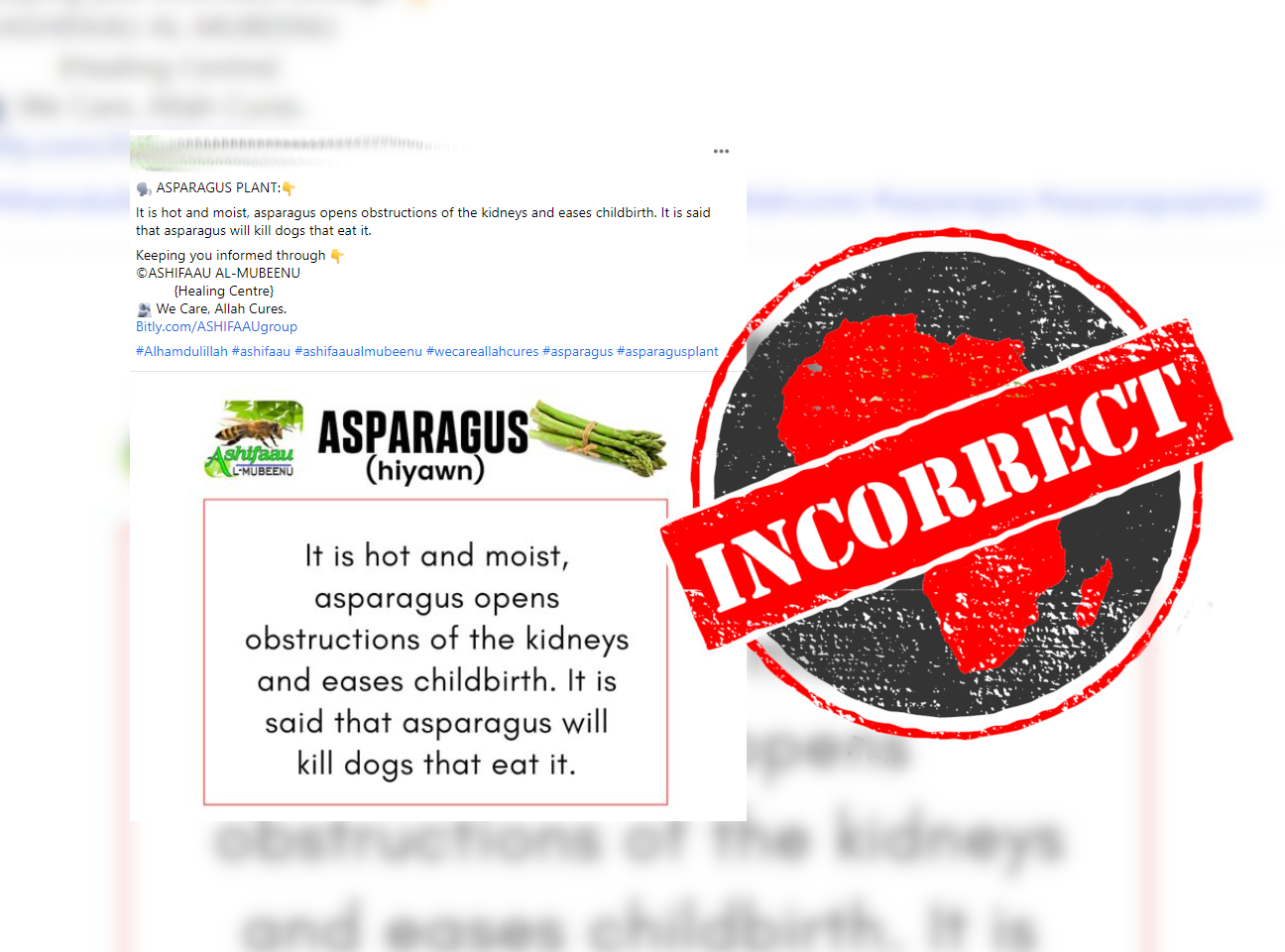“Asparagus opens obstructions of the kidneys and eases childbirth,” reads a message posted on Facebook in Nigeria.
Asparagus is a vegetable in the lily family. It can be eaten raw but can also be used in dishes such as stir fries, pastas, and frittatas.
But can asparagus clear kidney obstructions and ease childbirth? We checked.

Untreated obstructions can lead to kidney failure
A blockage or obstruction in the urinary tract can lead to hydronephrosis, where the kidney becomes swollen because urine can’t properly drain out of it into the bladder. It can affect one or both kidneys. Some causes of hydronephrosis include kidney stones, tumour, cancer, a urinary tract infection and an enlarged prostate.
“I am not aware of that plant treatment,” Babatunde Salako, a professor of nephrology and a consultant at the University College Hospital Ibadan in western Nigeria, told Africa Check.
“Hydronephrosis could be caused by kidney stones. The stones can travel from the kidney to the bladder and, depending on size, can block the ureter and cause hydronephrosis.”
Ureters are tubes that run from the kidney to the bladder.
“But an ultrasound method called lithotripsy can break the stones into pieces, which makes it easier to pass the stone pieces through urine.”
Salako added: “Most of these problems are surgical issues. We have to use surgery to remove the obstruction. If the obstruction remains for too long – say, more than three months – it can affect the kidney’s function and lead to kidney failure.”
Follow medical experts’ instructions during childbirth
Adegboyega Fawole, a professor of obstetrics and gynaecology at the University of Ilorin in western Nigeria, told Africa Check that asparagus would not ease childbirth.
“It’s a difficult time. Women experience high levels of pain during childbirth, so they should listen to instructions from their doctors, who will tell them what to do at each point in the process,” Fawole said.
“I do not support expectant mothers experimenting with herbs. They should be careful with what they consume during pregnancy."
Republish our content for free
For publishers: what to do if your post is rated false
A fact-checker has rated your Facebook or Instagram post as “false”, “altered”, “partly false” or “missing context”. This could have serious consequences. What do you do?
Click on our guide for the steps you should follow.
Publishers guideAfrica Check teams up with Facebook
Africa Check is a partner in Meta's third-party fact-checking programme to help stop the spread of false information on social media.
The content we rate as “false” will be downgraded on Facebook and Instagram. This means fewer people will see it.
You can also help identify false information on Facebook. This guide explains how.


Add new comment